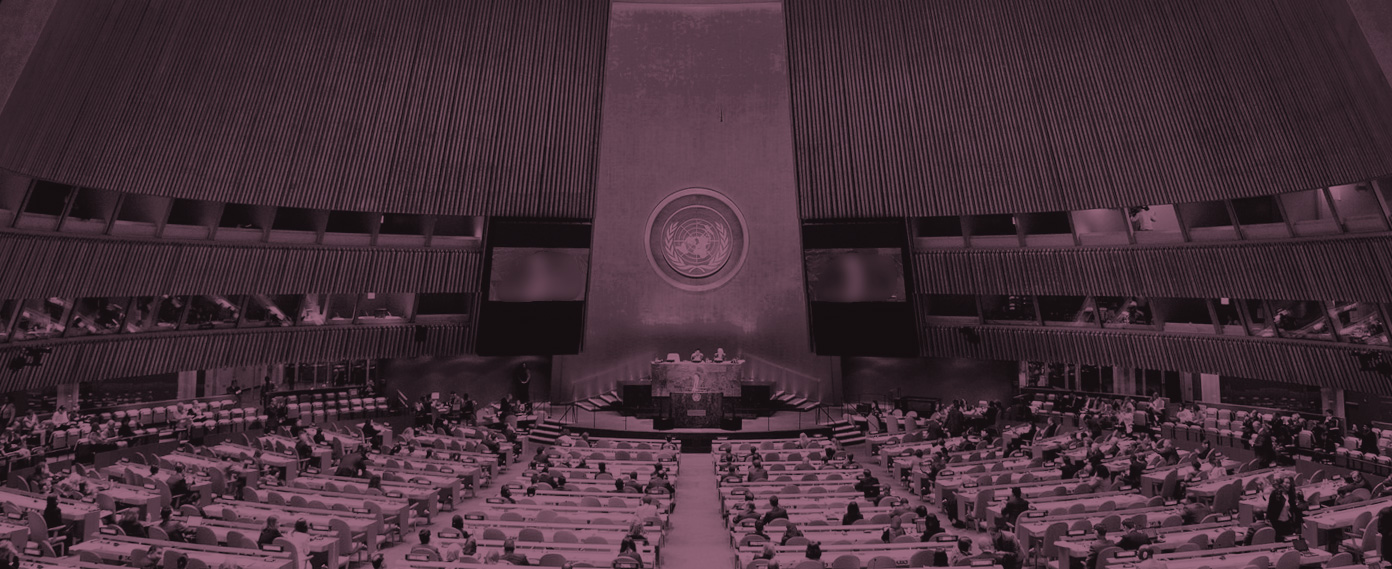
How UN Member States can change the direction of international drug policy towards better human rights protection
In light of the upcoming United Nations General Assembly Special Session on Drugs (UNGASS) in 2016, the author calls on country representatives attending UNGASS to consider a series of pathways to make the current global drug policy in line with human rights.
The prevailing global approach to drug control has been – and continues to be – an unequivocal failure.
UN Member States now have an historic opportunity to change this ineffective system with the upcoming United Nations General Assembly Special Session on Drugs (UNGASS) in early 2016. UN special sessions provide a forum for high-level discussions on matters of global importance. UNGASS 2016 offers the chance to take decisive action against the objective set at the last special session on drugs in 1998, namely: to eliminate or significantly reduce demand and supply of drugs by 2008. This prohibitionist approach has now been shown to be entirely unrealistic.
The figures speak for themselves. An estimated $1.5 trillion has been spent globally on repressive drug policies in the last forty years. Yet between 2003 and 2012 law enforcement authorities worldwide reported an increase in personal drug use and drug trafficking. The net cultivation of opium poppy production in Afghanistan has more than tripled between 1994 and 2014. And in Mexico alone, an estimated 100,000 people have been killed since 2006 in connection with the “war on drugs”.
“People’s health and safety must be put ahead of any other policy consideration”
Statistics such as these have prompted an increasing number of Member States to question the value of the existing policy – both in financial and practical terms. Originally planned for 2019, Mexico, Colombia and Guatemala requested, in a resolution that was co-sponsored by 95 other countries, that the UNGASS be brought forward to 2016. This illustrates how politicians at the highest level are determined to have an open debate on alternative approaches to drug control – and that it should be sooner, rather than later.
The Global Commission on Drugs has called upon country representatives attending UNGASS to consider the following pathways in their debates. These will enable the definition of workable alternatives to the current system – alternatives that must be in line with human rights, the post-2015 development agenda and which reflect a true paradigm shift.

Photo by Palazzo Chigiz / CC BY-NC-SA 2.0
Firstly, people’s health and safety must be put ahead of any other policy consideration. This means investing in community protection, prevention, harm reduction, and treatment as cornerstones of drug policy. A prohibitionist policy forces drug use underground, which results in dangerous drug use. For example, up to 40 per cent of new cases of HIV and Hepatitis C come from unsafe injecting practices. This can be translated as almost 2 million years of life lost through premature death as a consequence of HIV infection.
“The criminalisation and incarceration of people who use drugs must come to an end”
Secondly, access to essential medicines and pain control must be ensured. Overly stringent limits on dosage and preparation methods as well as on prescribing and dispensing practices, ostensibly to prevent diversion and entry into the black market, must be removed. Not doing so leads to unnecessary pain and suffering, particularly in poorer countries. The World Health Organization estimates that 5.5 billion people lack access to opioid based medicines, including 5.5 million terminally ill patients.
Thirdly, the criminalisation and incarceration of people who use drugs must come to an end. This is critical to any genuinely health-centred policy. Criminalisation of drug use not only stigmatises people who use drugs as social outcasts but it also discourages them from seeking help and accessing treatment. In many countries, drug users fear being reported to the authorities and being placed on so-called drug registries or in forced rehabilitation. These measures can severely restrict rights in areas like health, employment and family life and are often counterproductive. Persons who become dependent on drugs respond to care; and criminalisation gets in the way of creating a compassionate response.
Fourthly, law enforcement policies should be focused on organised crime. A more targeted enforcement approach – deprioritising non-violent and minor participants in the market – will ensure peace and security. Currently, punitive policies focusing on, for example, drug growers and mules, disproportionally affect the poorest and most vulnerable. This results in prison overcrowding, encourages corruption of local officials and threatens the unity of the family and community without having any real effect on the availability of illegal drugs.
Finally, drug markets must be regulated to put governments in control. Doing so will reduce social and health harms and disempower organised crime. While the most effective methods for regulation is still a question to be debated, the choice between regulation itself or non-regulation is simple – there is either a drug market controlled by governments or by criminal gangs. There is no third option whereby the drug market can simply disappear.
While the overarching principle of the current global regime on drug control is the “health and welfare of mankind” in reality it has led to untold, albeit unintended, human rights violations. Underlining this issue is that the current international drug control treaties make no reference to human rights and their implementing bodies have repeatedly failed to prioritise human rights.
Previous international summits on drugs have merely reaffirmed this approach. UNGASS 2016 must mark a watershed by defining a new direction in international drug policy with a focus on human rights throughout.